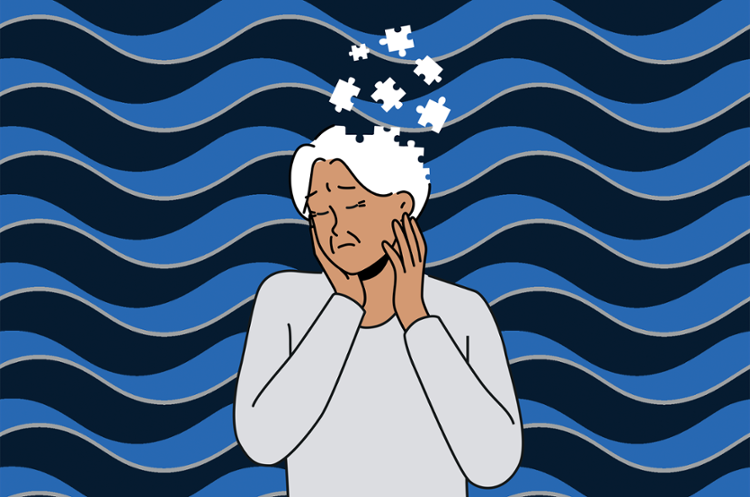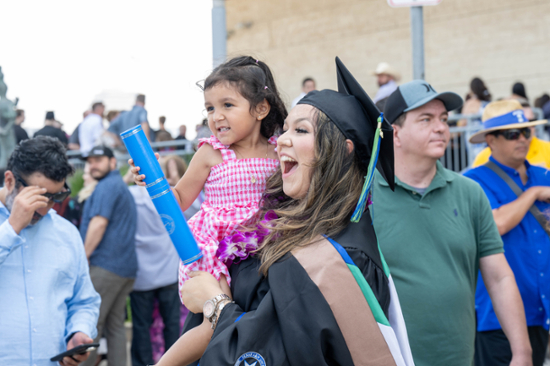Empathy in Action: TAMU-CC Launches New Online Graduate Degree for Hispanic Mental Health Counseling
CORPUS CHRISTI, Texas — In the ever-evolving landscape of mental health services, acknowledging and addressing the unique needs of distinct communities, especially traditionally underserved communities, is paramount. Texas A&M University-Corpus Christi takes a pioneering step forward with the introduction of its online Master of Science in Professional Counseling-Hispanic Mental Health Counseling (HSON) program. The inaugural cohort will commence in fall 2024.
As the fastest-growing demographic in Texas, Hispanic and Latino communities are predicted to comprise half the state’s population by 2060. Despite so many Hispanic residents, however, their access to essential mental health services is limited, and with a recent study conducted in El Paso revealing that Hispanic adults struggling with mental health issues are 17% less likely to receive treatment, there is a clear gap to fill to ensure all Texans receive the health care they need. The launch of this new online program at the Island University stands to make positive change in addressing these inequalities.
The barriers faced by Hispanic people in accessing mental health care are complex and worthy of consideration, according to Dr. Joshua Watson, Professor and Chair of the TAMU-CC Department of Counseling and Educational Psychology.
“Stigma around seeking help for mental health is a factor in most communities, but it is especially prevalent in Hispanic communities,” Watson said. “It’s important to view mental health treatment through the same lens as any illness: if you break your leg, it’s only logical that you would seek medical treatment to set things right, but in the case of mental health, a person can be viewed as crazy, unstable, or weak. Mental health concerns can also manifest as a loss of confidence or trust in a person who may be struggling with it, which hampers relationships and reinforces isolation.”
Watson also noted that there are clear linguistic, cultural, and geographic barriers related to mental health care access for Hispanic people.
“While our Coastal Bend counties are already considered as being underrepresented in terms of mental health agencies, it is an even bigger issue in the Rio Grande Valley and border towns,” Watson said. “Also, if there happens to be a Hispanic mental health provider in your small town, there is a high chance they know you and your family, which might compound your reluctance to consult them. Or you must drive hundreds of miles to find a provider, which naturally results in long wait times for care.”
The result of these obstacles is often that those who need the most help never receive it; according to a study by the U.S. Department of Health and Human Services, up to 50% of Hispanic youth between the ages of 18 and 25 with a serious mental illness will never receive treatment.
Watson hopes that aspiring mental health professionals from all over the country, but specifically those from remote towns, will be encouraged to apply to the new online program.
“A prospective student who is already well-ingrained in their community, who sees a need to be filled there, and is up for the challenge, is an ideal candidate for our program,” Watson said. “Even though this is an online program, we have found ways to maintain the human connection that counselors thrive on through synchronous real-time meetings and opportunities to form relationships with classmates.”
This master’s program was formulated through the unique lens of the Hispanic experience, incorporating professional-standard language skills with culturally appropriate approaches to practice, and highly applicable theoretical and hands-on learning.
“In developing this course, establishing cultural competencies was key,” Watson said. “We put together an advisory board of mental health professionals with relevant expertise, including TAMU-CC alumni, who are active in the field, and who advised, contributed to, and oversaw the curriculum design process. It has been a long process, with many questions to be answered: Is this window dressing? Are we addressing an issue deeply enough? We are all focused on ensuring that this course meets our university mission as a Hispanic-Serving Institution and that it will serve the students who choose to study this course at the highest standard.”
For Dr. Emilia O’Neill-Baker ’07, a bilingual (English-Spanish) licensed professional counselor and member of the program’s advisory committee, the topic of culturally appropriate counseling is one that she has devoted her professional life to.
“There is a state-wide need for Latino-speaking counselors, but many aspiring mental health professionals with these language skills lack confidence to practice in Spanish,” she said. “This new program stands to make a huge difference to the lives of those in need of support — both practitioner and client alike — and I am honored to have been involved in its development.”
Eva Cantwell ’96, ’07, ’10, ’26, an Islander student in the Master of Science in Professional Counseling program, sees this new course as a crucial step to empowering the Hispanic community.
“Graduates of this program will have the potential to make substantial inroads into the Hispanic community’s normalization and de-stigmatization in the context of seeking mental health care, and I am very excited to work alongside the first cohort,” Cantwell said. “Therapists are in a unique position to be able to advocate for the populations in their care; they can literally give voice to the needs and issues faced by so many — until they can speak for themselves.”
For more information on this new program, including application information and deadlines, visit https://www.tamucc.edu/programs/graduate-programs/professional-counseling-hson.php.











